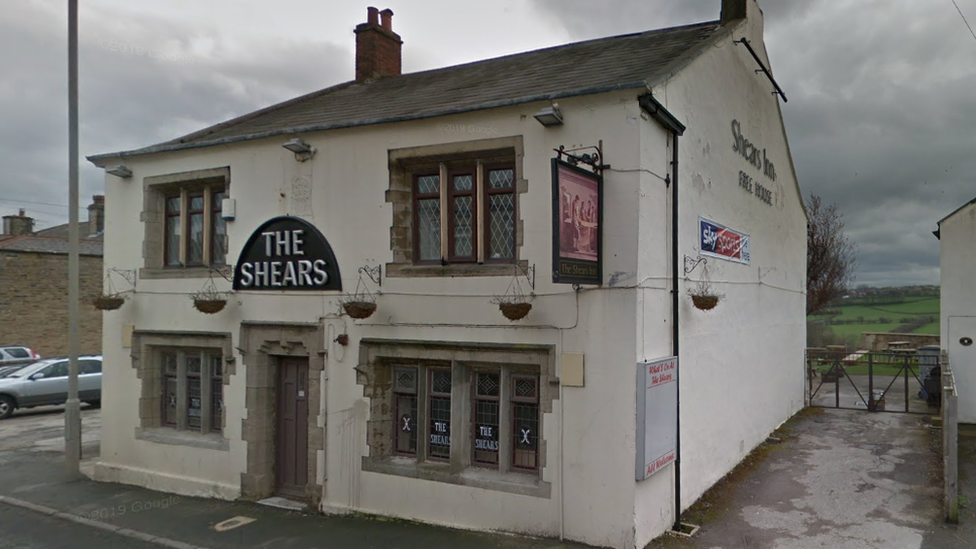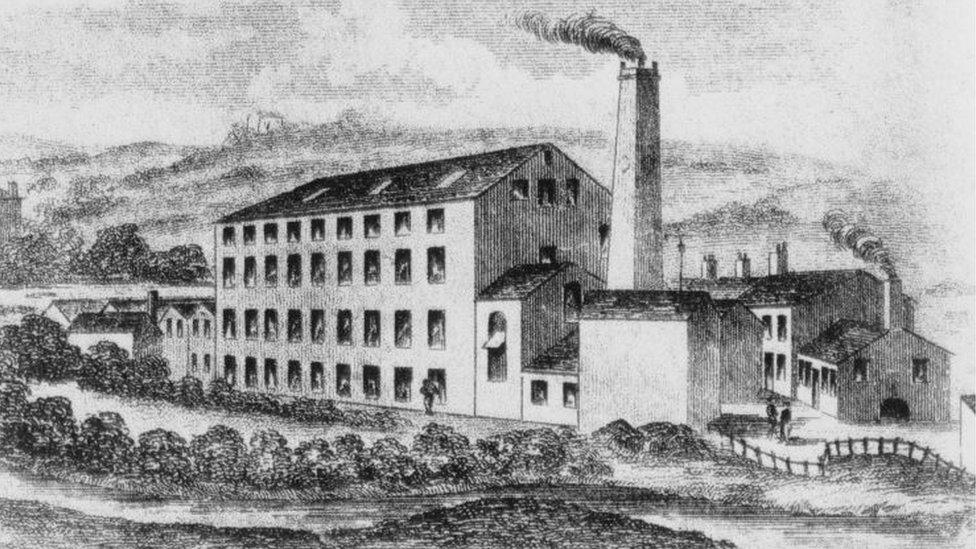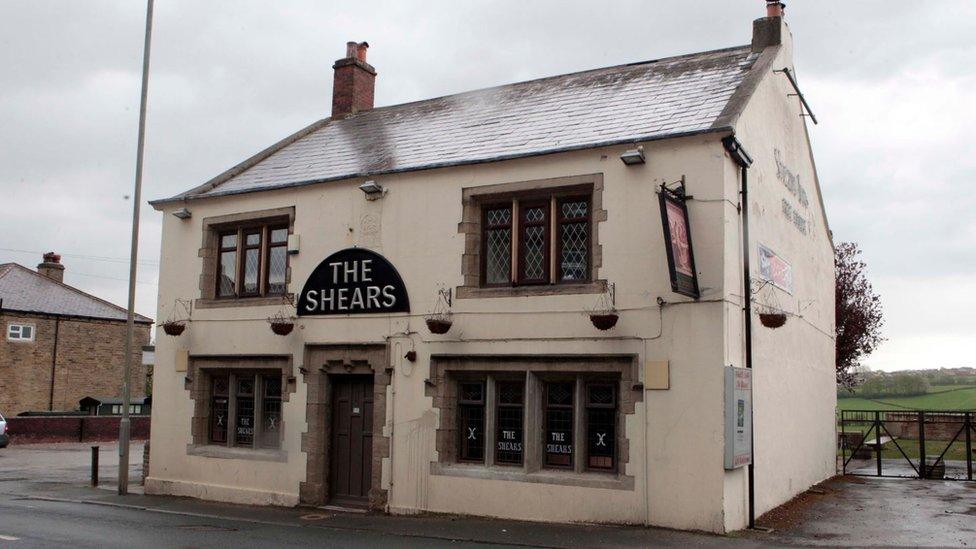Liversedge Luddite pub The Shears saved from demolition
- Published

The proposed scheme for the building on Halifax Road at Hightown received 433 objections
Plans to demolish an historic pub with links to the Luddite rebellion of the early 19th Century have been refused.
The Shears Inn in Liversedge, West Yorkshire, was a meeting place in 1812 for textile workers who felt their jobs were threatened by mechanisation.
Owner Andrew Mitchell said the pub was no longer viable and had applied to replace it with four houses.
Kirklees Council rejected the plan, with one councillor describing the building as "spectacularly important".
According to the Local Democracy Reporting Service, the proposed scheme received 433 objections.
Councillor John Lawson described the pub as "spectacularly important".
"Do not underestimate the importance of this building for the local population," he told Wednesday's meeting.
However, councillor Graham Turner said better-designed houses might find favour as opposed to the current "shabby" pub.
Others argued it should be retained and re-purposed and not knocked down.
The decision was welcomed by Spen Valley Civic Society whose spokeswoman said: "Kirklees Council has clearly listened to residents."
Speaking after the meeting, Mr Mitchell said: "I just wish people would ask themselves, before voicing their opinions, how much support as a community they have given to their local pubs.
"The government have also announced recently that there is funding available for communities to purchase local pubs, [but] not one solitary person has shown an interest, which I believe tells its own story."
Mr Mitchell said he had invested hundreds of thousands of pounds in the Shears Inn since he bought it and was considering appealing against the decision.
The Luddites took their name from Ned Ludd who may have been a weaver or a mythical figure.
The textile workers gathered in an upstairs room of the pub in April 1812 before lying in wait on Hartshead Moor and ambushing wagons carrying cropping machines that could replace several workers.
Shortly afterwards on 12 April in West Yorkshire's most notable attack, about 150 Luddites marched on Cartwright's Rawfolds mill in Cleckheaton but were repelled and two were killed.
The ringleaders were later hanged.


Rawfolds Mill, between Huddersfield and Leeds, was attacked in April 1812
The Luddite rebellion (1811-13)
It included textile workers in Yorkshire, Lancashire and Nottinghamshire
Luddite attacks began in Nottinghamshire
In Yorkshire attacks were led by croppers, highly skilled finishers of woolen cloth who were highly organised
After a trial in York, 17 Luddites were hanged in January 1813.
Source: The Luddites at 200, external

Follow BBC Yorkshire on Facebook, external, Twitter, external and Instagram, external. Send your story ideas to yorkslincs.news@bbc.co.uk, external.
Related topics
- Published27 April 2019
